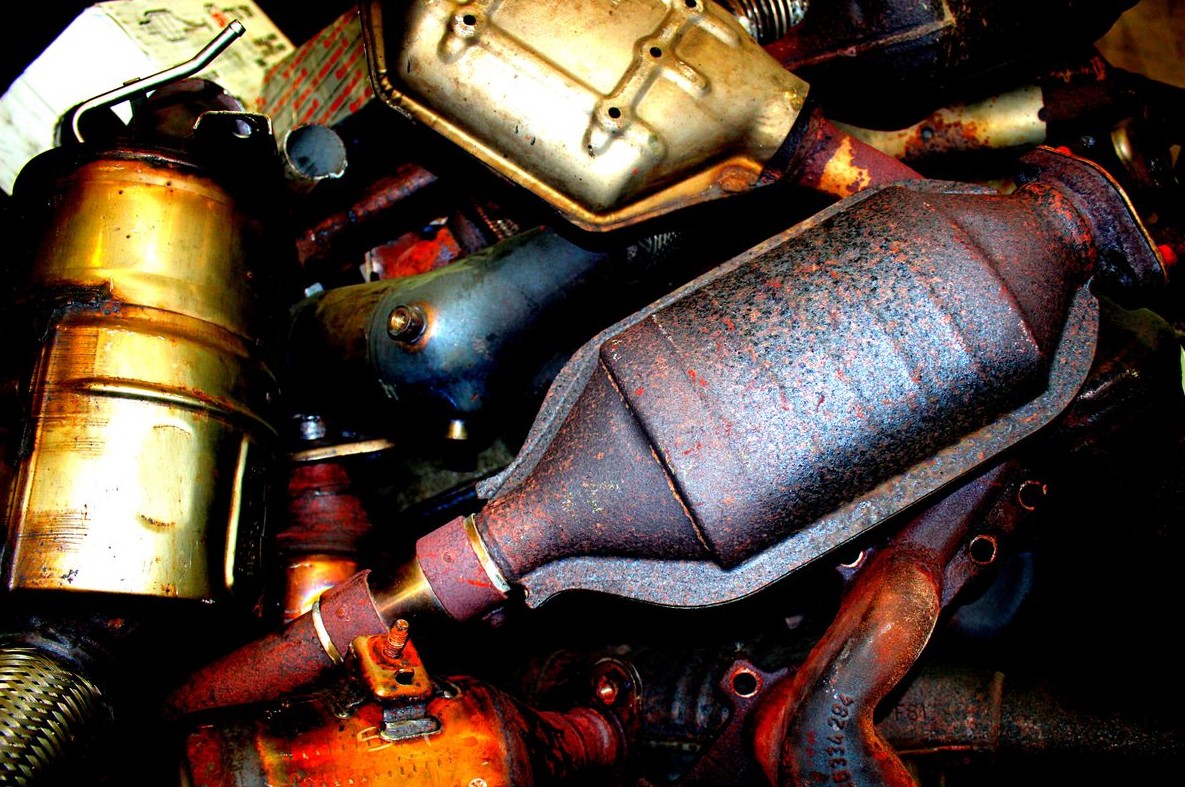
It’s an unfortunate fact that catalytic converters are often coveted by thieves. This is because the precious metals and sophisticated inner workings of a cat make it a very valuable car part. No driver wants the expense of replacing a stolen or broken-down cat. With this in mind, pay heed to the following signs of trouble and if you notice them, visit your local Chevy dealer to have it repaired before the problem worsens.
Does Your Chevy Need a New Catalytic Converter?
You Catch a Whiff of Sulfur
One of the toxic emissions your engine produces is hydrogen sulfide. When your cat is working well, the hydrogen sulfide is converted neatly into harmless gases. But if your cat stops functioning properly, the hydrogen sulfide will leak out, and you’ll soon detect its distinct sulfury rotten egg smell.
Aging or dirty transmission fluid can also emit a rotten egg smell. But it’s safer to assume that a sulfury stink is hydrogen sulfide because this gas is extremely dangerous to breathe. So if you smell rotten eggs, pull over at once and try to identify the source. You might need a technician to help diagnose it.
You See Black Exhaust Smoke
Cats can malfunction if any escaped fuel somehow leaks into the exhaust system. Fuel might leak like this because of a worn-out fuel filter, a faulty fuel pressure sensor, or a misfiring combustion chamber.
If it reaches the cat, fuel will corrode the cat’s delicate internal meshwork. The fuel can also sometimes ignite because the interior of a cat is often very hot. This will instantly melt the meshwork and precious metals, destroying your cat. In this case, you’ll see black smoke pouring from the tailpipe.
Your Engine Starts to Struggle
A clogged cat can harm the engine by creating a block to the flow of oxygen. When the backup of gases and air prevents fresh oxygen from entering the engine’s cylinders, your car will start misfiring.
You’ll experience a loss of power and acceleration. You’ll start idling roughly when you pause at traffic lights. And your fuel economy will drop as well.
You Hear Rattling When You Corner
When a cat breaks down with age, the meshwork inside starts to fall apart. When you steer around corners, you might hear these loose parts rattling below you. A hard knock on the cat from a pothole can loosen the cat itself, in which case you’ll hear it rattle around in its loosened brackets.
How a Chevy Dealer Diagnoses Cat Trouble
When your engine or exhaust system has problems, it’s not always easy to know if the cat is to blame or not. One way a technician works this out is by measuring heat. A clogged cat creates an enormous amount of heat just upstream of it as emissions build up, unable to escape. A technician can measure this heat with a pyrometer, infrared thermometer, or another tool.
Have your cat examined and repaired today by qualified professionals at Merle Stone Chevrolet. We’ve been proudly serving the region’s drivers since 1957.




